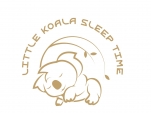Around 3.5-5.5 months, you may suddenly find that your once "angelic baby" who could "sleep anywhere" has become a "sleep-deprived" and "wakes up as soon as they touch the ground" baby. This might indicate that the baby's "four-month sleep regression" has arrived! At this point, you'll frequently ask yourself: Did I do something wrong? Why did the baby suddenly become "sleep-deprived"?
In fact, you didn't do anything wrong. You just need to realize: My baby is growing up! I need to learn new knowledge too!
Today, Ms. Sharon is here to help you sort out the knowledge points.
First, let's understand the causes of the "four-month sleep regression":
(1) When the baby reaches four months, their sleep pattern will shift towards that of an adult, alternating between light and deep sleep. This means that during the transition of sleep patterns, if the baby cannot fall asleep on their own, or if they have strong sleep associations like being held or nursed to sleep, they won't be able to fall back asleep on their own. This is one of the reasons for short daytime naps and frequent nighttime awakenings. Only when the baby finds the initial way they fell asleep can they sleep again. This is why many mothers who are used to nursing their babies to sleep find that, in the middle of the night, feeding is the only way to get the baby back to sleep.
(2) The biological clock begins to form. From 7-9 am to 6-7 am. The daytime nap time also gradually becomes regular, and the bedtime gradually advances as the baby transitions from four naps to three. If we still look at our baby with "old eyes" and use old methods to soothe the baby to sleep, then the "four-month sleep regression" will surely come. At the same time, under the influence of the biological clock, the baby's melatonin will form at 12 weeks, and you will find that the baby prefers to sleep in a quiet and dark environment. Cortisol forms between 3-5 months. When the baby is overly tired, a large amount of cortisol is secreted, making it difficult for the baby to be soothed to sleep, and they may even cry incessantly. If the baby cannot catch up on sleep and remains tired for a long time, it will lead to a vicious cycle of short daytime naps and frequent nighttime awakenings.
(3) Significant developments in consciousness, physiology, and emotions. The baby starts to receive a lot of language and begins to recognize different faces, which stimulates the baby to become playful and unwilling to sleep, especially when being soothed to sleep. Many mothers have experienced this: they are exhausted, and the baby is sweaty from fussing, but still can't fall asleep. If this coincides with the baby starting to roll over, it adds to the sleep challenges.
So how do we tackle these challenges??
(1) Break the inherent sleep associations, reduce the level of soothing, and cultivate the baby's ability to fall asleep independently.
I prefer to call the baby's "four-month sleep regression" the "four-month sleep development period". Once we take advantage of this crucial time of sleep pattern change, it will become a significant milestone in the baby's sleep history. When babies start to sleep like adults, this process becomes irreversible. They can't go back to the newborn-like sleep pattern, and we can't expect the "angelic baby" who could sleep anytime, anywhere, to reappear. But what we can do is "use force to counter force", use the characteristic of sleep pattern change, provide appropriate opportunities for the baby to learn self-soothing, and practice falling asleep on their own. By gradually reducing the level of soothing and increasing the baby's self-soothing awareness, mothers should remember: independent sleep is a skill. Only through continuous practice and learning can the baby truly master it. What we need to do is patiently provide opportunities for the baby to try, not to increase the level of soothing, but to gradually withdraw, step by step, and finally break through the challenge of independent sleep during this daunting "four-month sleep regression".
(2)Regular routines, making full use of sleep pressure and the biological clock, let the baby sleep at the "right" time, and refuse "junk sleep". We all know about "junk food", but what is "junk sleep"? If the baby sleeps at the wrong time, resulting in short sleep duration and poor sleep quality, we call this "junk sleep". Mothers can use the following schedule to gradually regulate the baby's routine:
7:00 am —— Wake up the baby
Between 8:30 am – 9:00 am —— First nap (Wake up the baby by 11:00 am at the latest to ensure the rest of the day's naps go smoothly)
Between 12:00 pm – 1:00 pm —— Second nap (No need to wake up the baby)
Between 3:00 pm – 3:30 pm —— Evening nap (30–45 minutes)
Between 5:00 pm – 7:00 pm —— Bedtime (Determine bedtime based on the baby's sleepiness and the quality of daytime naps)
During the baby's major sleep regression phase, avoid excessive fatigue. Soothe the baby to sleep on time, let them sleep during the best restorative period, and achieve long and good sleep.
(3) The best way to deal with major movements is to practice rolling over during the day, let the baby play enough, and reduce the curiosity about rolling over at night. For nighttime rolling over, it's also recommended not to intervene too much. Many mothers get anxious when they see the baby roll over and can't roll back. They keep wondering: Should I help him roll back? The answer is yes, but don't help him roll back as soon as he rolls over. Instead, wait for a while, give the baby a chance to gradually find a way to self-soothe. After 5-10 minutes, decide whether to roll the baby back. If the baby is already sleepy, then of course, don't intervene!
At the same time, parents can provide high-quality companionship during the day and, 15 minutes before putting the baby to sleep, take the baby to a dimly lit bedroom, sing songs quietly, tell stories, and let the baby transition smoothly from playtime to bedtime, calming their excited emotions. During this process, catch the baby's sleep signals and soothe them to sleep on time.
So, the baby's four-month sleep fluctuation doesn't necessarily mean sleep regression. Your solution determines whether you end up with a "sleep-deprived" or "angelic" baby.
Technical Summary: First, make sure the baby can sleep at the right time, perfectly combining sleep pressure with the biological clock. The goal is for the baby to get sufficient and efficient rest, avoiding excessive fatigue. Then, on this basis, practice gentle independent sleep.
Note*: Never repeatedly try independent sleep exercises when the baby is overly tired. It will make mothers doubt themselves even more in their frustrated state.
With the fourth month approaching, it's essential to encourage the baby to learn to fall asleep independently. Once the baby masters this skill, most sleep problems will be resolved.



